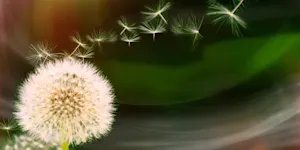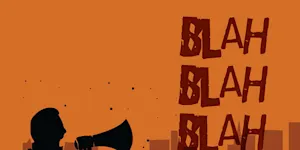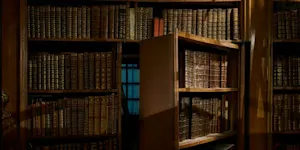What Makes This Word Tick
"Woebegone" is a beautifully expressive word that paints a picture of someone who's visibly burdened by sorrow or distress. Its very sound carries a somber resonance, almost as if the word itself feels the weight of the woe it describes. It's the word you might reach for when someone looks like they've been through life’s wringer and are practically wearing their sadness like a cloak.
If Woebegone Were a Person…
If "woebegone" were mingling at a garden party, they’d likely be the one quietly sipping tea, tearfully reminiscing over memories triggered by the blooming roses. Their eyes might mirror the gray clouds before a rain, a gentle presence that's both tender and touching.
How This Word Has Changed Over Time
"Woebegone" has clung to its roots fairly tenaciously over centuries. It originated from the Old English "wēogēon," where it literally meant "beset by woe" or "brought low by distress." While the word isn't as prevalent today, it retains its expressive depth, cherished by those who treasure a poetic touch.
Old Sayings and Proverbs That Use Woebegone
It’s not every day you find "woebegone" nestled in a proverb, but its spirit resonates with age-old sayings like "every cloud has a silver lining," reminding us that even the most sorrow-laden expressions nod towards hope and resilience.
Surprising Facts About Woebegone
Here's a tidbit: "woebegone" used to be a more common player in the literary canon of the 19th century, often describing forlorn characters who roamed dusty novels or gothic tales. It’s a delightful artifact from a time when language luxuriated in its emotive capabilities.
Out and About With This Word
Think of a woebegone expression like a wet cat shying away from warmth—a face that tells tales of lost dreams and fleeting joys. Next time you wander through an art gallery, see if you spot a portrait where the subject wears their woe as woefully as our beloved word implies.
Pop Culture Moments Where Woebegone Was Used
Though "woebegone" isn't a red-carpet darling in today's pop culture, its close cousin, sadness, makes regular appearances in ballads and films, where forlorn characters pull at our heartstrings. Listen closely, and you might just hear echoes of "woebegone" in the background.
The Word in Literature
Classic literature loves a good wallow in melancholy, and "woebegone" fits right in. It’s the kind of word you might stumble upon in novels by Hardy or Brontë, where landscapes and characters often reflect deep inner turmoil and longing.
Moments in History with Woebegone
Picture Charles Dickens’ England—grimy, gray, and heart-wrenching. Though "woebegone" might not headline historical documents, it describes the expression Dickens might have seen on the faces of his fellow city-dwellers during the bleakest winters.
This Word Around the World
Across the globe, expressions of sorrow and struggle are universally recognized, though the vocabulary may differ. In Japan, the concept of "mono no aware" captures a similar sense of beauty tinged with melancholy—the fleetingness of life and sadness intertwined.
Where Does It Come From?
"Woebegone" is woven from Middle English roots, combining “woe,” a term for deep sorrow, and “begone,” suggesting abandonment to that emotion. It’s a linguistic blend as evocative as it is somber, carrying its historical heft into modern usage.
How People Misuse This Word
Sometimes people toss "woebegone" around, mistaking it for a general term for sadness. However, it truly captures the depth of dejection visible on one’s face—not just a passing sadness but one that seems captured in every furrow and crease.
Words It’s Often Confused With
Forlorn: Both suggest deep sorrow but "forlorn" often implies abandonment or hopelessness.
Melancholy: A more subdued, reflective sadness compared to the overt weariness of "woebegone."
Desolate: While also conveying sadness, "desolate" leans more towards loneliness and emptiness.
Additional Synonyms and Antonyms
Synonyms for "woebegone," such as "mournful," "forlorn," and "doleful," carry similar shades of visible grief. Antonyms would include "cheerful," "joyful," and "happy" — words that paint a completely different picture on the emotional canvas.
Want to Try It Out in a Sentence?
How about: "After hearing the news, her face was nothing short of woebegone, as if all the world's unhappiness had found a home in her weary expression." It’s a word that wraps around the soul like a drizzly day, evocative and beautifully resilient.
















